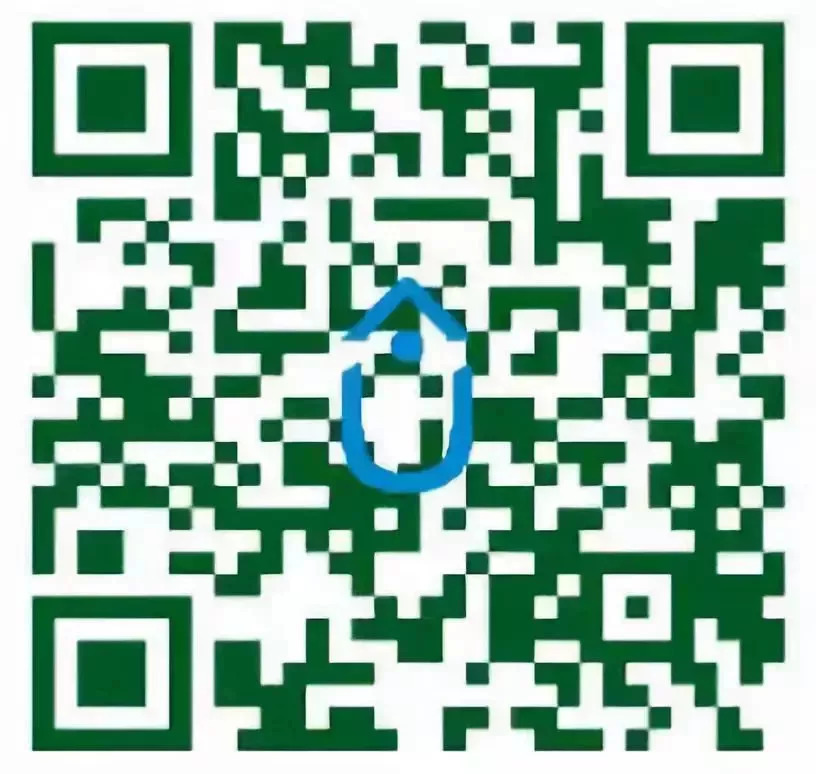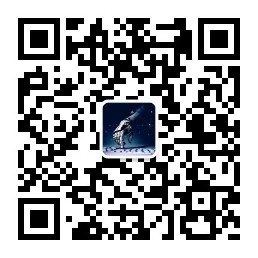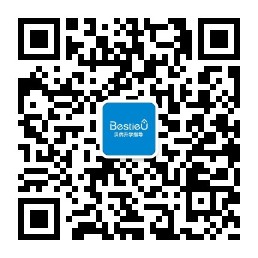不少指导老师深有感触,牛津面试经常“更换装备”,经常来个措手不及。
牛津面试制度十分严格又角度刁钻,往往不按套路出牌,要说面试最难的大学,那一定是牛津大学!
不过牛津的态度还是很好的,每年本科申请截止(10月15日)后,会公布面试例题、解题思路、还是很贴心的。
不过就算这样,每年能进牛津的人还是寥寥可数,可见过硬的个人素质以及充分的面试准备缺一不可。
就在10月18日,牛津又公布了本年度最新面试例题和答案,申请牛津的学生和相关指导老师要注意了。
每年超过20,000人申请牛津本科的3,200个入学名额,会有大约10,000场面试。
牛津面试时间安排在12月初到中旬。面试时间一天或超过一天,要看申请的是什么专业。考虑到国际生的距离问题,牛津表示所有医学入围者必须到牛津面试;其他专业采取就近原则,直接到牛津大学面试或接受电话/网络面试。





医学/生物医学科学专业
面试官: Chris Norbury, The Queen's College
问题: The viruses that infect us are totally dependent on human cells for their reproduction; is it therefore surprising that viruses cause human diseases?
Chris: Like most good interview questions, this could be a starting point for any number of interesting conversations. Most candidates will have a reasonable understanding that viruses are essentially parasitic genetic entities, but the interviewers are not really looking for factual knowledge.
In a tutorial-style discussion, strong candidates will engage with the paradox that viruses need us for their own reproduction, and yet cause us damage. They might point out that some of our responses to viral infection (such as sneezing) favour the spread of the virus. The interviewer might steer the discussion towards viral infections associated with high mortality, and the idea that any virus that killed off its host entirely would run the risk of extinction – unless it could infect other host species too. Candidates may have come across examples of viruses that jump from non-human animals to human hosts in this way.
We might then ask if the candidate considers it possible that there are viruses that infect humans and reproduce successfully, but do not cause any disease. How might we go about finding and characterising such viruses? These questions probe selection criteria including problem-solving, critical thinking, intellectual curiosity, communication skills, ability to listen and compatibility with the tutorial format.

音乐专业
面试官: Laura Tunbridge, St Catherine's College
问题: What are the different ways in which you listen to music? How does that change the way in which you think about what you're listening to?
Laura: Music interviews often have several parts: there may be questions about your interests or on broad topics, and many colleges will give a reading and/or a short piece of music to look at beforehand, which you will be asked questions about. Some colleagues play music in the interview and, similarly, ask what your thoughts are about it. The point of all this isn't to find out what you don't know but to get a sense of how you read a text or understand a piece of music, and how you think through issues or material. We are very much aware that the types of music people play and care about are varied and the course itself covers a wide range, from global hip hop to Mozart, medieval song to sound art. It's not a question, then, of liking the right stuff but of finding out how curious you are, and how well you can apply what you already know to something new.
Standalone questions like this one, are more unusual, but suggest the kinds of topics that might be used to prompt discussion. The question allows students to use their own musical experiences as a starting point for a broader and more abstract discussion about the different ways people consume music, the relationship between music and technology, and how music can define us socially. There might be follow-up questions about whether students think a particular way of listening has more worth the others, for example. It could also prompt other discussions; for example, we tend inWestern Europeto be silent in concert halls: why might that be and what is the effect? Does it encourage a certain kind of attentiveness and respect? Might it put some people off? What would be effect of, say, clapping between movements of a symphony to your understanding of how the music works?
I might also expect to discuss whether particular types of music suit being listened to in particular ways; whether listening on headphones changes the way you experience what's going around you; and what makes some soundtracks better than others. We are interested in probing their understanding of music and its contexts, so thinking about how you share music with others and how the environment in which you listen to music affects the way you experience it – if you hear the same tracks live, at a festival or concert, what factors change how you hear and think about the music? The study of music is about more than just examining composed works, and a question like this gets at that aspect of the course.

化学专业
面试官: Martin Galpin, University College
问题: How many different molecules can be made from six carbon atoms and twelve hydrogen atoms?
Martin: This question gives candidates an opportunity to demonstrate a wide understanding of chemistry and there is no simple, immediate answer.
Most candidates would start by drawing some molecules to construct some that satisfy the requirement of six carbons and twelve hydrogens. If the candidate gets stuck, the interviewer may ask them to explain how many bonds they'd expect each carbon and each hydrogen to form. This part of the interview tests candidates' familiarity with different kinds of molecules, their ability to visualise molecules in three dimensions and then draw them, and their ability to decide if two differently-drawn molecules are actually equivalent. During this process, the interviewer would also be looking at how well the candidate responds to prompting.
After a few minutes, the interviewer may use the question to move the discussion toward concepts such as chirality, cis-trans isomerism, ring strain, and isotope effects. Candidates may not have heard of these before, which is fine and to be expected; the interviewer wants to see how quickly the candidate picks up new concepts and whether they can offer plausible explanations for them. The interviewer might finish the discussion with a rather more difficult question, such as 'is a molecule only stable if all the carbons form four bonds?', thus challenging what is taught at school and getting the candidate to think critically about the nature of a chemical bond.

地球科学专业
面试官: Conall MacNiocaill, Exeter College
问题1: How can we estimate the mass of the atmosphere?
Conall: This question can be addressed in variety of ways and addresses several of our selection criteria: an aptitude for analysing and solving a problem using a logical and critical approach; lateral thinking and hypothesis generation; the ability to manipulate quantities and units; and the ability to apply familiar concepts (pressure, force etc.) to unfamiliar situations.
Candidates often like to start off by thinking about the composition of the atmosphere, and how we might know that, what its density is, and then to ways of estimating its volume. We look to see if there are ways of simplifying the problem: for example, could you treat the Earth and atmosphere as a sphere slightly larger than the Earth and subtract the volume of the Earth from the larger sphere to get a volume for the atmosphere? The difficulty with this approach often lies with determining where the atmosphere ends and how the density might vary with altitude, how applicable concepts like the ideal gas law are in these circumstances, and these are uncertainties that we might explore in a discussion.
An alternate approach is to see if there are properties of the atmosphere that we can observe at the surface that might enable us to estimate the mass. One such property is atmospheric pressure, which is a force per unit area. The force can also be described as a mass multiplied by an acceleration, which on Earth is the acceleration due to gravity. Hence, if we have some idea about atmospheric pressure we can calculate the mass pressing down on a unit area. If we can estimate the total surface area of the earth (approximated by the surface area of a sphere) we can therefore calculate the total mass of the atmosphere.


以上是牛津给出的全部例题。牛津面试页面也给出了更多专业的面试问题以及指导,下面是部分热门专业的部分面试问题:






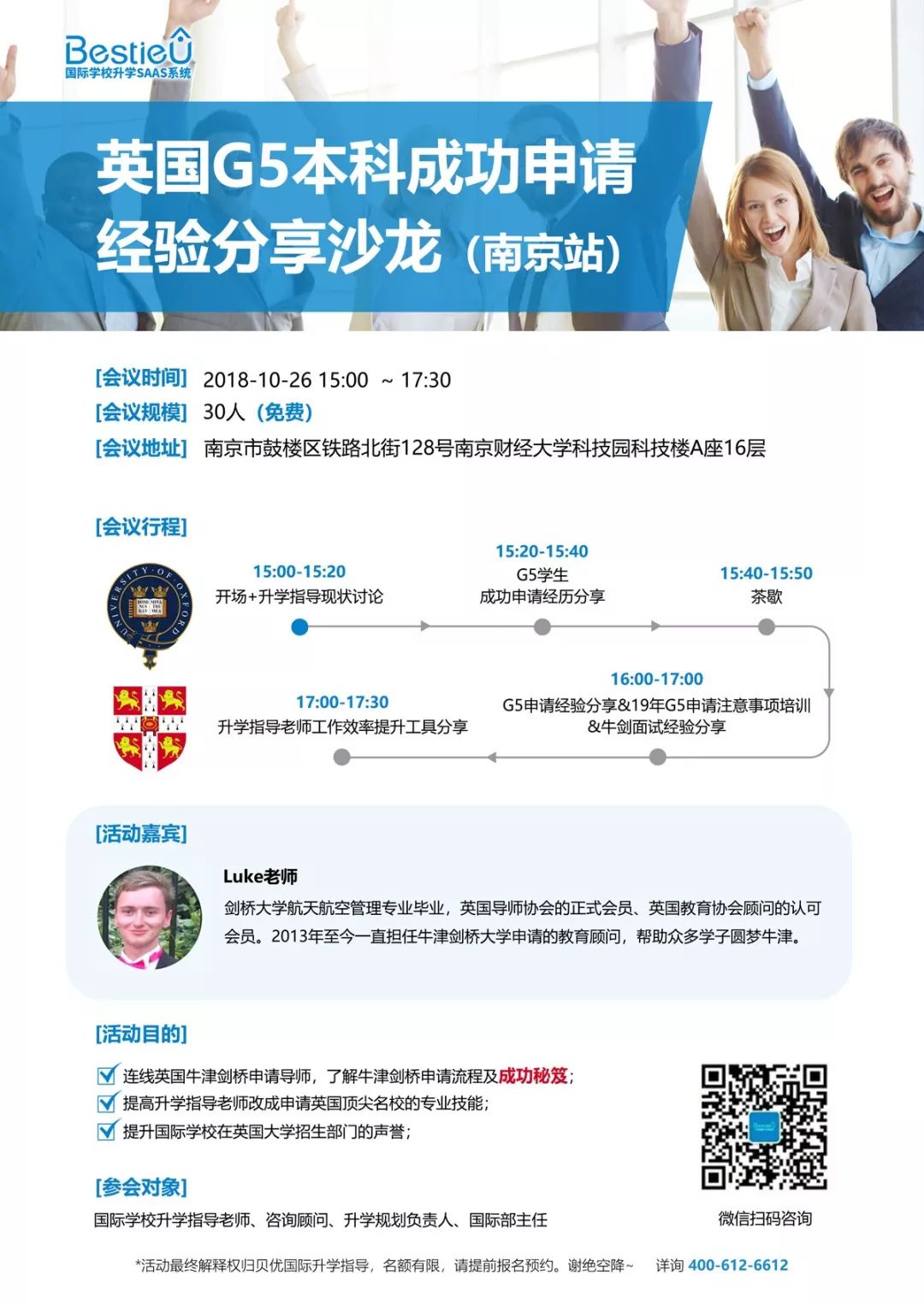
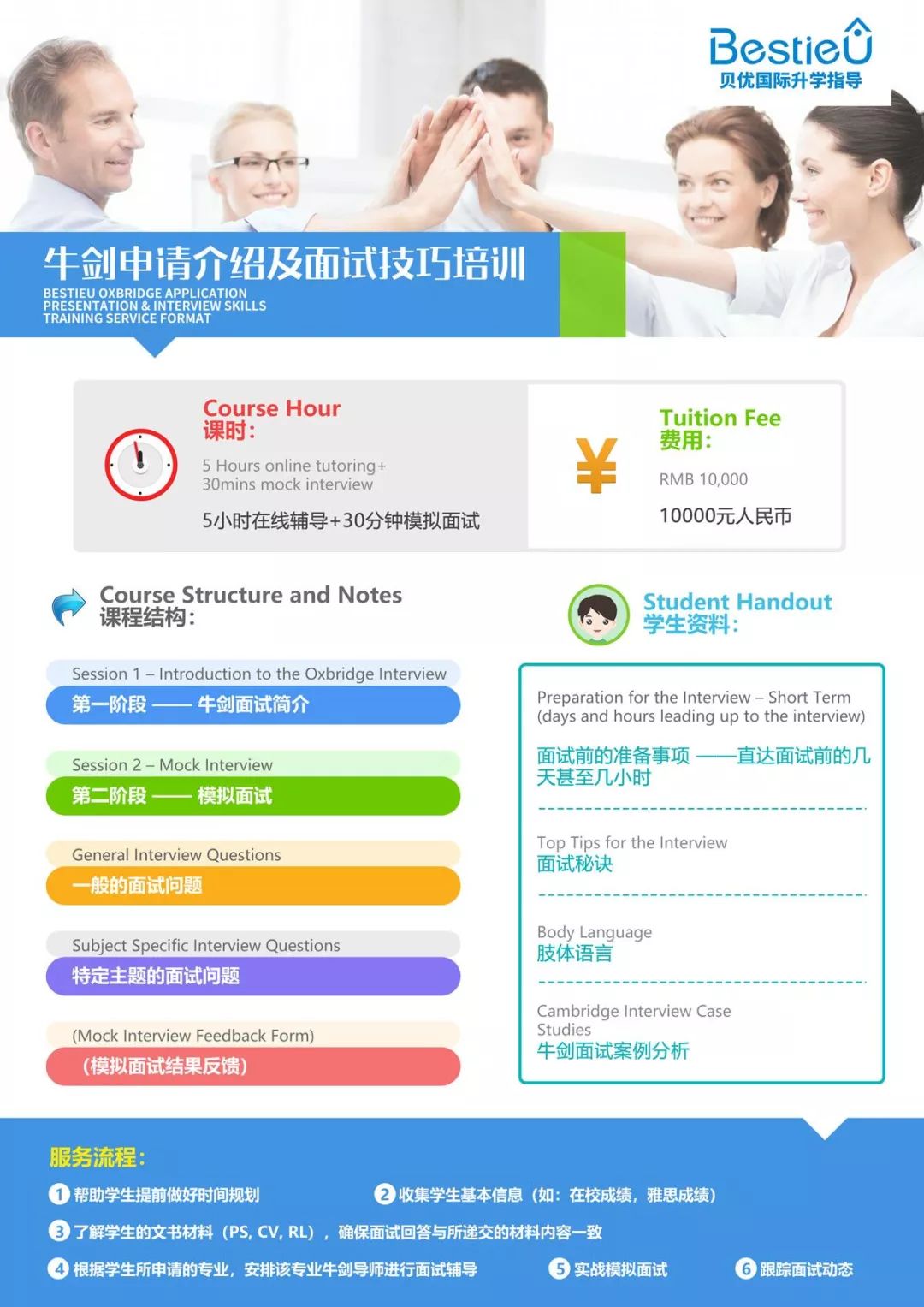
贝优国际升学指导牛剑辅导产品介绍
PS指导课程介绍课程次数:
5 次课时:每次一小时授课方式:
一对一线上辅导
1.Personal Statement 素材挖掘•详细了解学生背景(如学科成绩,意向专业,兴趣爱好,课外活动,实习经历等)•确定学生的个人优势•根据不同专业背景进行 PS 素材挖掘•提炼出具有个人独特性且针对性的素材•明确 PS 结构及内容框架
2.Personal Statement 内容准备•通过 PS 素材挖掘,完成 PS 初稿•对初稿内容进行修改•根据学生提供的素材对 PS 初稿内容进行进一步挖掘
3.Personal Statement 内容完善•根据不同学科专业进行学术背景提升•根据不同学科背景添加专业性知识添加完善相关课外活动及实习经历
4.Personal Statement 内容优化•对已完善的 PS 内容进行修改•提升 PS 精华体现出学生独特性•体现出学生学术能力及无限潜力
5.Personal Statement 定稿•进行 PS 内容语言修饰及修改•检查语法错误•深入掌握 PS 内容
Interview面试指导课程介绍课程次数:
5 次课时:每次一小时授课方式:
一对一线上辅导
1.介绍面试流程•根据不同专业梳理面试流程•详细了解面试内容•牛津或剑桥大学在寻找怎样的申请者?•了解面试官背景(如学科研究方向)
2.专业学科课程指导•详细了解所报专业学科背景知识•熟练掌握所学相关学科内容,建立完善学科知识•广泛阅读学科相关内容,了解与科目相关实时社会新闻•建立批判性思维有效全面的的分析问题
3.面试技巧分析•学习语言沟通技巧•如何有效的交流所学学科知识•加强并提升面试技巧•加强在不熟悉环境里临场发挥的信心及经验
4.模拟面试part 1•熟练掌握PS内容及所提交书面申请材料内容•分析如何扩展相关内容•面试内容归纳总结•面试问题系统训练
5.模拟面试part 2•体验真实面试场景•深度模拟面试反馈•提供面试改进策略
来吧,看看我们的
贝优牛剑导师团队
毕业于牛津大学圣贝内学院(St Benet’s Hall)哲学、政治和经济专业(Philosophy, Politics and Economics) A-level期间主修生物、经济、英语文学和心理学科目。
现担任英国哈罗公学(Harrow School)经济、哲学和商业课程的高级讲师,同时也负责学校高中学生剑桥和牛津大学的申请服务,并亲自参与指导学生申请牛津和剑桥大学过程中的个人陈述书(Personal Statement), 面试技巧辅导和针对牛剑独有的TSA笔试考试。Joshua老师在牛剑大学申请方面具有将近10年的经验,特别是针对个人背景较弱的学生,Joshua老师会针对性的根据学生的自身情况打磨背景材料查漏补缺,从各个方面帮助学生做足冲刺牛剑的充分准备,获得了众多学生的一致好评。
此外,Joshua老师还担任针对牛津剑桥申请的经济学、政治学和哲学方向辅导组织的优秀研讨讲师。针对学生的不同科目,进行模拟面试,在面试技巧、推理能力和连贯、创造性思维方面给予学生个性化的反馈和帮助。 同时Joshua老师作为私人讲师,有长时间教授英语、政治、哲学、经济学、国际关系、宗教研究等科目的教学经验,并负责学生的学术评估、个人教育规划等。因为同时具备丰富的国际课程教学和大学申请的经验,也让Joshua老师更加懂得如何帮助学生从最基本的学科知识去拓展个人学术背景从而体现并运用到个人陈述书以及面试中。
在过去的近10年里,Joshua老师通过自己各方面的能力、长时间累积的经验和专业的服务指导帮助了将近100名学生成功进入了梦想的大学。
Luke老师本科及研究生均毕业于剑桥大学航天航空管理专业(Aerospace and Aerothermal Engineering),是英国导师协会的正式会员,同时也是英国教育协会顾问的认可会员。
在科研成果方面,Luke老师参与并设计出了F1赛车的扰流板,还作为发明者之一参与了MEng的项目研究, 其团队的发明将申请专利并进行批量生产。
从2013年至今,Luke老师一直担任私人导师和牛津剑桥大学申请的教育顾问,具备丰富的 A-level国际课程教学经验,且致力于数学,物理,化学,经济学,计算机科学,信息通信技术和工程等学科的课程辅导,帮助指导学生有效的提高学科成绩 。Luke老师长期亲自指导并负责众多学生申请牛津剑桥的个人陈述书(PS)及模拟面试,特别是在针对申请工程/工程科学,自然科学,物理,计算机科学和数学等专业方面有丰富的经验, 专门为准备申请牛津剑桥的A-level学生提供学科及申请大方面的专业指导,并最终帮助学生拿到录取通知书。自2012年 以来,Luke老师在全英范围内设计并组织了数百次模拟访谈和小组辅导研讨会,并开发了例如剑桥思维技能评估样本问题等支持材料,严密的分析牛津剑桥各学院录取数据,为申请人提供了切实、专业的升学指导。使得学生在申请牛津及剑桥本科工程类专业的成功率达40%,帮助众多学子圆梦牛剑。
Beth老师作为沙特阿拉伯的皇家导师,曾在求学期间拿到剑桥大学录取通知书,本科毕业于英国布里斯托大学英文戏剧系(English and Drama), 硕士毕业于皇家威尔士音乐戏剧学院(Musical Theatre)。
2014年至2016年,Beth在迪拜担任私人高级教育顾问及导师,负责教授本地和国际学生的基础课程以及升学指导工作。由于学生的文化背景差异明显,因此Beth老师在此期间积累了丰富的针对不同学生群体的指导经验,建立了广大的外籍学生网络资源;在英国,欧洲各国,美国以及澳大利亚都分别拥有自己的指导过的学生,其中指导对象还包括了阿联酋皇室成员。
目前,Beth老师担任线上指导老师,负责教授GCSE及A-level基础课程及牛津剑桥大学申请辅导。结合她多年海外授课及辅导申请的经验,Beth老师深知国际学生在牛剑大学申请过程中的优势及劣势,更会结合学生们的自身情况扬长补短,帮助学生从各个方面比如逻辑分析,现场反应,学科分析,知识扩展等进行学习和练习。Beth老师既专业又耐心的指导深受学生和家长的好评,她也希望可以帮助到更多有需要的学生。

Bestie U国际学校智能升学SAAS系统日前已经正式推出,如果你是国际学校的海外升学指导老师,这里有一个免费试用的机会,赶紧戳“阅读原文”报名!更有一次免费的牛剑培训等着你!
国际学校升学老师福利群
(加群有惊喜哟~)

微信扫一扫
关注该公众号



